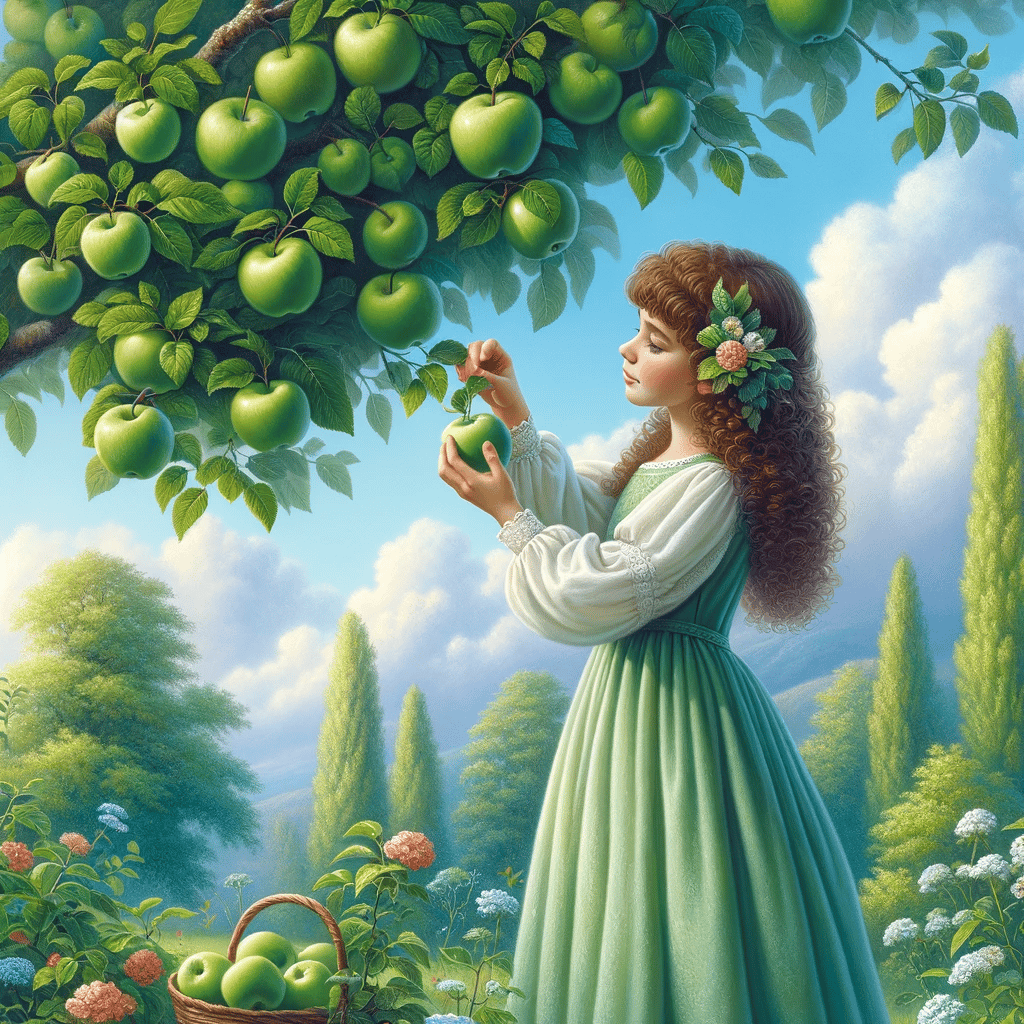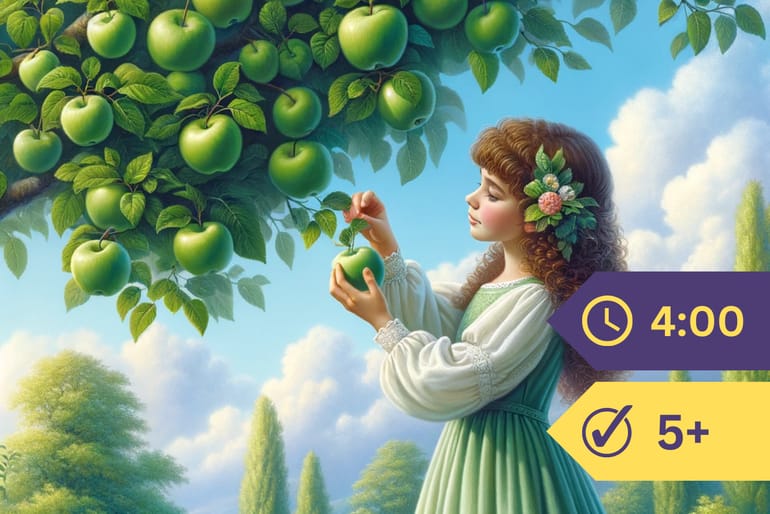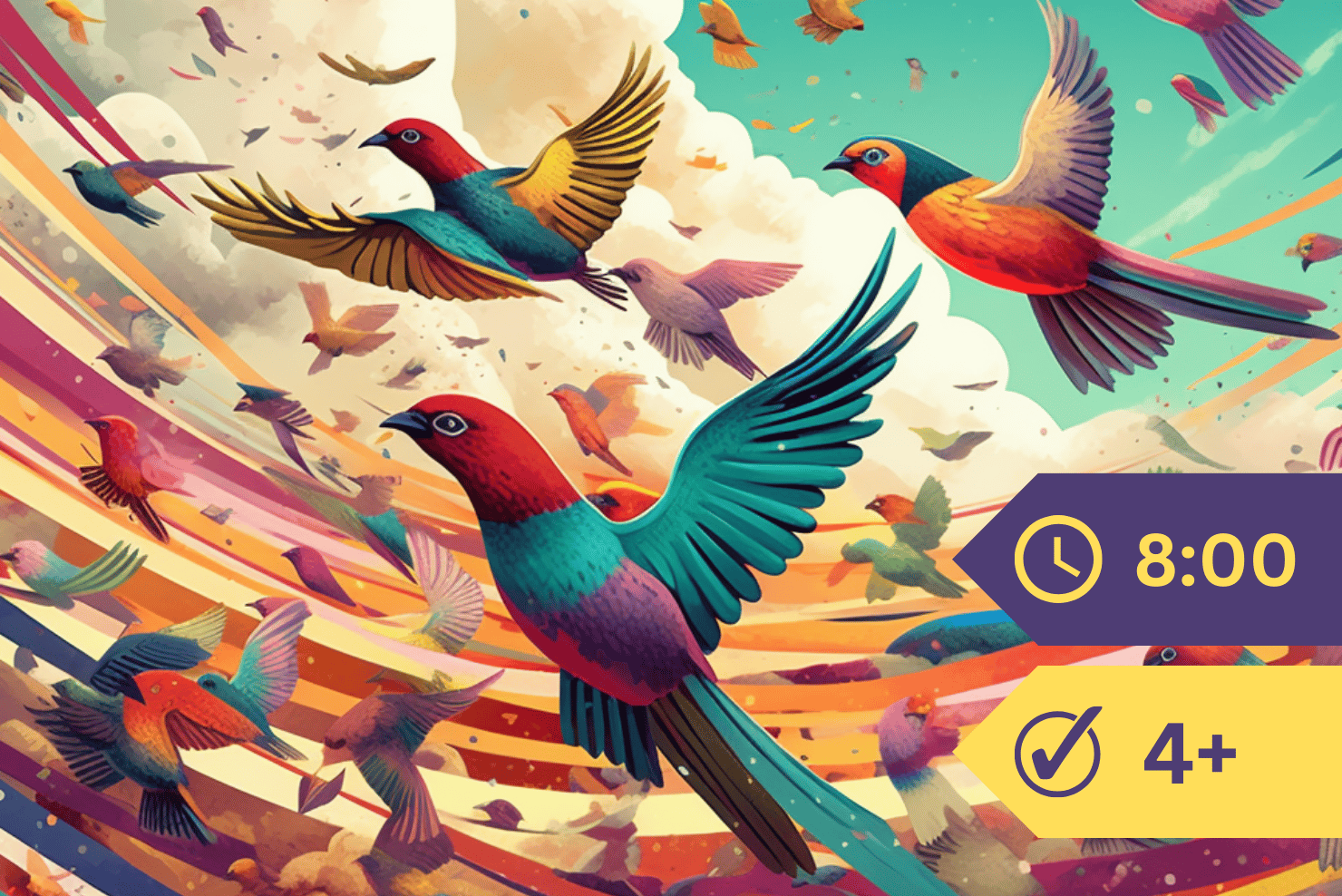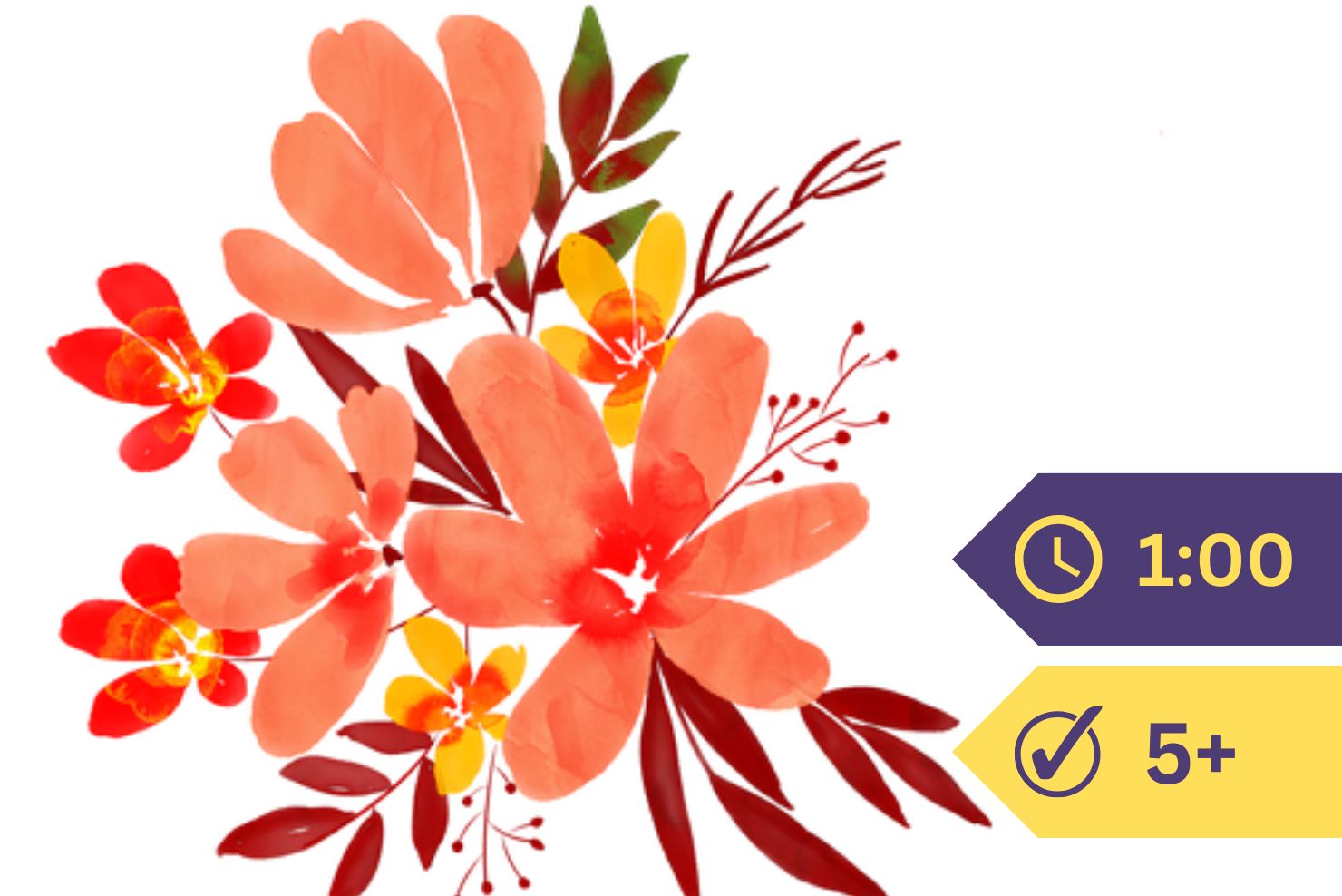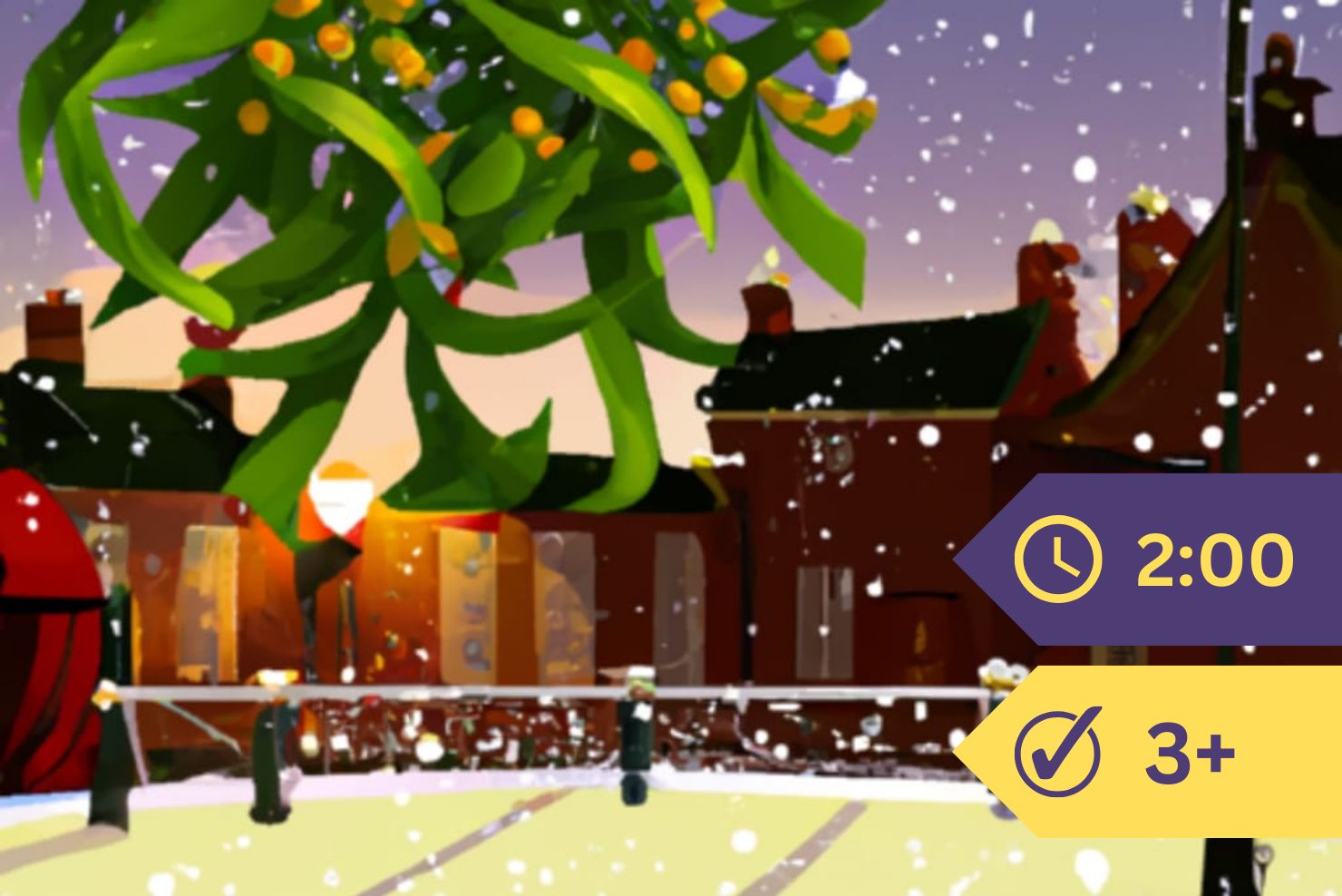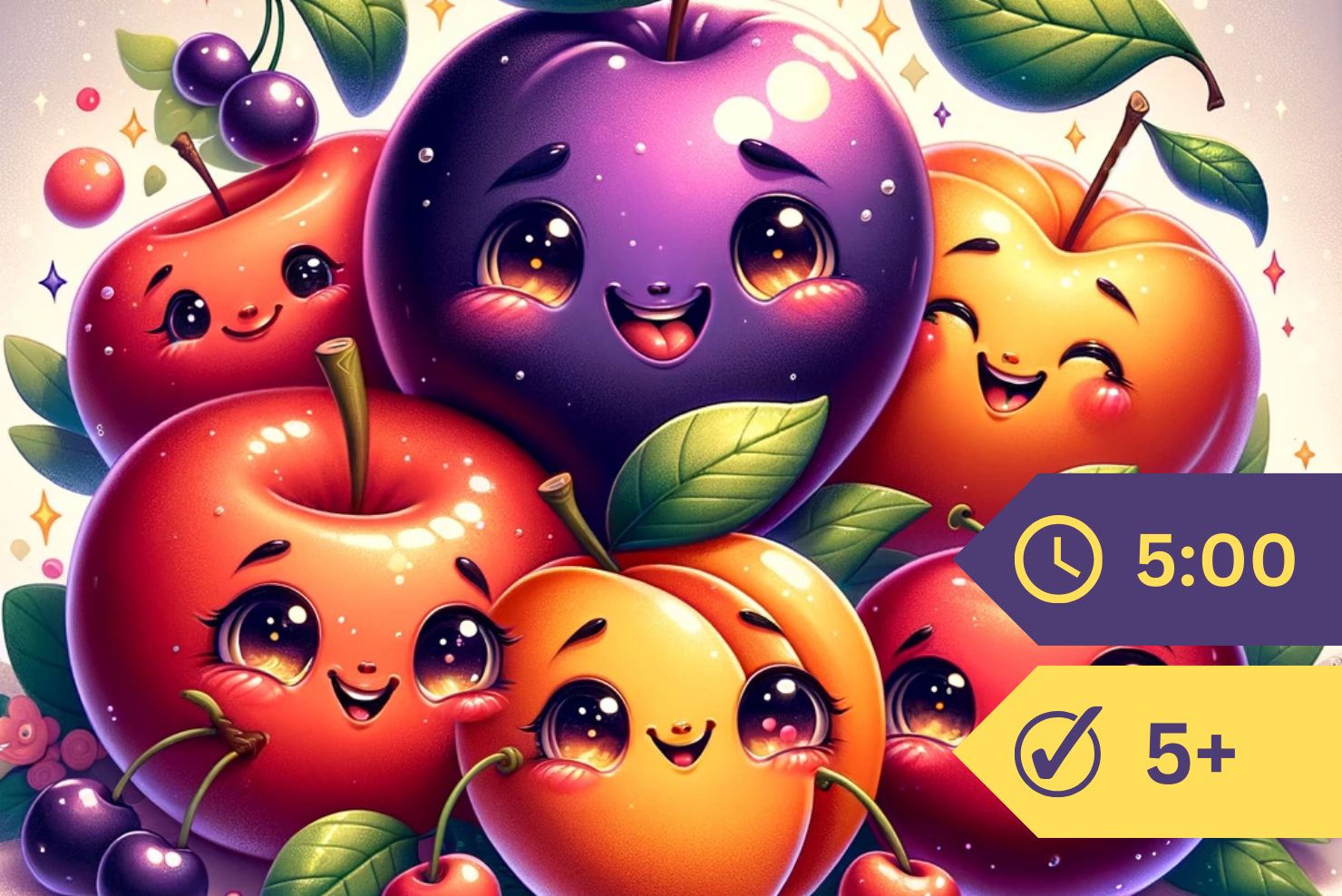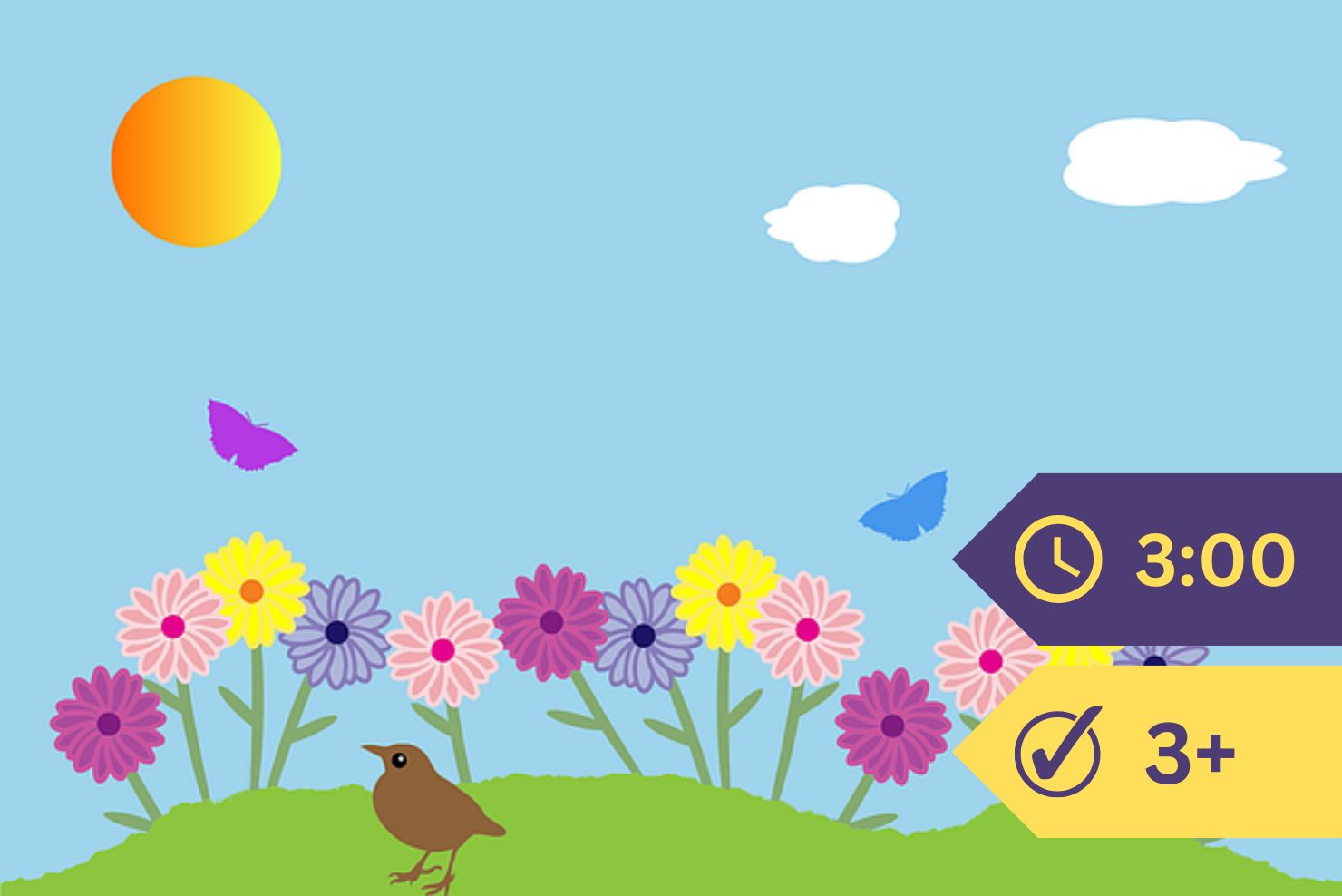At last I think we all understand that by the red of the apple, the purple of the plum, and the different colors worn by the berries we find in the woods, these plants are inviting us, and the birds also, to eat their fruit, and so release from prison their little seeds.
But what would happen, do you suppose, if no one should accept this invitation? What would become of their seeds if these pears and apples and berries were not eaten by boys and girls and birds?
Most of this question you can answer for yourselves.
If you leave the apple on the tree, after a time it falls off upon the ground; and unless picked up, there it lies till it decays. In the orchard every fall you see apples decaying on the ground. In a little while the fleshy part disappears, and the little seeds are thus let out of prison without help.
But many plants are not satisfied to leave their seeds so near home. Why is this, do you suppose?
Well, this is quite a long story.
All plants of the same kind need just the same sort of food. If too many apple trees grow together, they soon use up all the apple-tree food in the neighborhood.
So if a seed is to grow into a strong, hearty, well-fed plant, it ought to begin life in some place not already full of plants in search of just the food that it needs for itself.
If a plant or tree makes its fruit so good to eat that some boy or girl or bird is likely to pick it, the chances are that it will be carried at least a short distance before its seeds are dropped upon the ground.
Once in a while a plant is rewarded for its pains by having its young carried thousands of miles.
Think how far from its home the peach has traveled. As I told you before, it comes to us from Persia.
Now, if the Persian peach tree had not made its fruit very juicy and delicious, it is not likely that any one would have taken the trouble to bring its seeds way over here to us.
But this peach being what it is, one of the most delicious of fruits, the tree was rewarded for its pains by having its children taken where they were petted, and made much of, and had things all their own way; for no other peach trees were on hand to do their best to crowd them out.
Then think of the little partridge berry. The fleshy part of this the birds eat and digest. But the little seeds pass unharmed from the bird’s stomach to the earth, sometimes many miles from the woods where they were born.
What is true of the peach and of the partridge berry is true of many other fruits.
Without the help of man or bird or beast, these little seeds could at last get out of their seed cases; but without such help, often they could not get the start in life they need.
So it would seem as if a fruit’s bright color and delicious flavor were saying to us not only, “Come and eat us and set our seeds free,” but also, “and carry us far away, so that we may have a fair chance in the world.”
